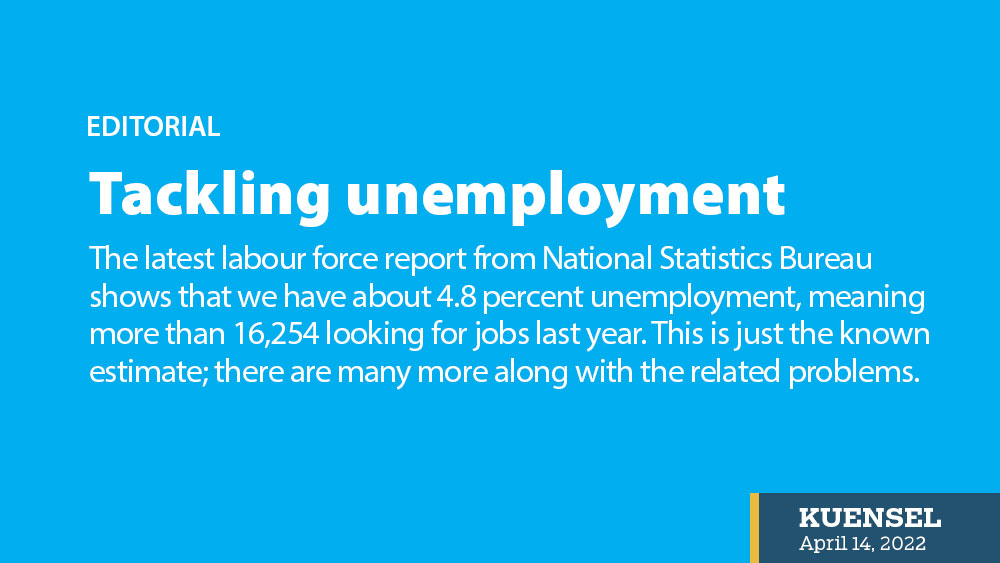The latest labour force report from National Statistics Bureau shows that we have about 4.8 percent unemployment, meaning more than 16,254 looking for jobs last year. This is just the known estimate; there are many more along with the related problems.
However, with businesses and other economic activities resuming after the pandemic, more jobs are likely to become available. The number of job seekers is increasing faster, especially after the pandemic. And the level of frustration is rising.
Many are attempting to leave to study and work abroad.
The essence of the problem has not changed since employment was first recognised as a problem more than a decade ago. Most people talk about a mismatch. The jobs available are not what job seekers are looking for. The job seekers are not what employers are looking for.
Employers want skills and experience. Job seekers are fresh out of educational institutions. If they had skills and experience they would already have jobs.
This is a gap that needs to be closed and, apart from vocational institutions, the first options have to be apprenticeships and internships. Such a “trial” period has proved to be of great value for both employers and job seekers in developed nations. In Bhutan, however, given that our private employers are struggling to launch their businesses, more so after the pandemic, they cannot afford to pay interns. Youth cannot afford to work for free. The government can expand its programmes where it shares some of the costs. And giving subsidies for internships in critical employment areas could be subsidised.
More than internships, those unemployed need training. The industry is poised to expand and is already looking for a wide range of trained people.
This trend is emerging at a time when our agricultural fields are becoming fallow at an alarming rate. From experience, we can say it is most unlikely that young people, particularly, will think of returning to the farms. The government is planning has plans to support enterprises and vocations in rural areas, with more businesses than outright farming. Such an initiative would need to be dramatically creative. It would need to be accompanied by facilities and comforts like power, and good and cheaper Internet.
Jobseekers also have far more opportunities to be self-employed gainfully on digital platforms. This area has vast potential and more investment opportunities for both government and private sectors. Removing barriers and giving more incentives would encourage many more to take jobs in this sector.
Despite the pandemic, Bhutan recorded a drop in the unemployment rate. The National Statistics Bureau’s report attributes the drop in the unemployment rate to the strategic interventions and programmes initiated by His Majesty’s Secretariat to stabilise the economy and protect the poor and vulnerable groups from the socio-economic fallout of the pandemic.
Despite years of attempting to solve this problem many programmes, here is a success story. We could learn from this and improve our efforts. The situation demands we must.


